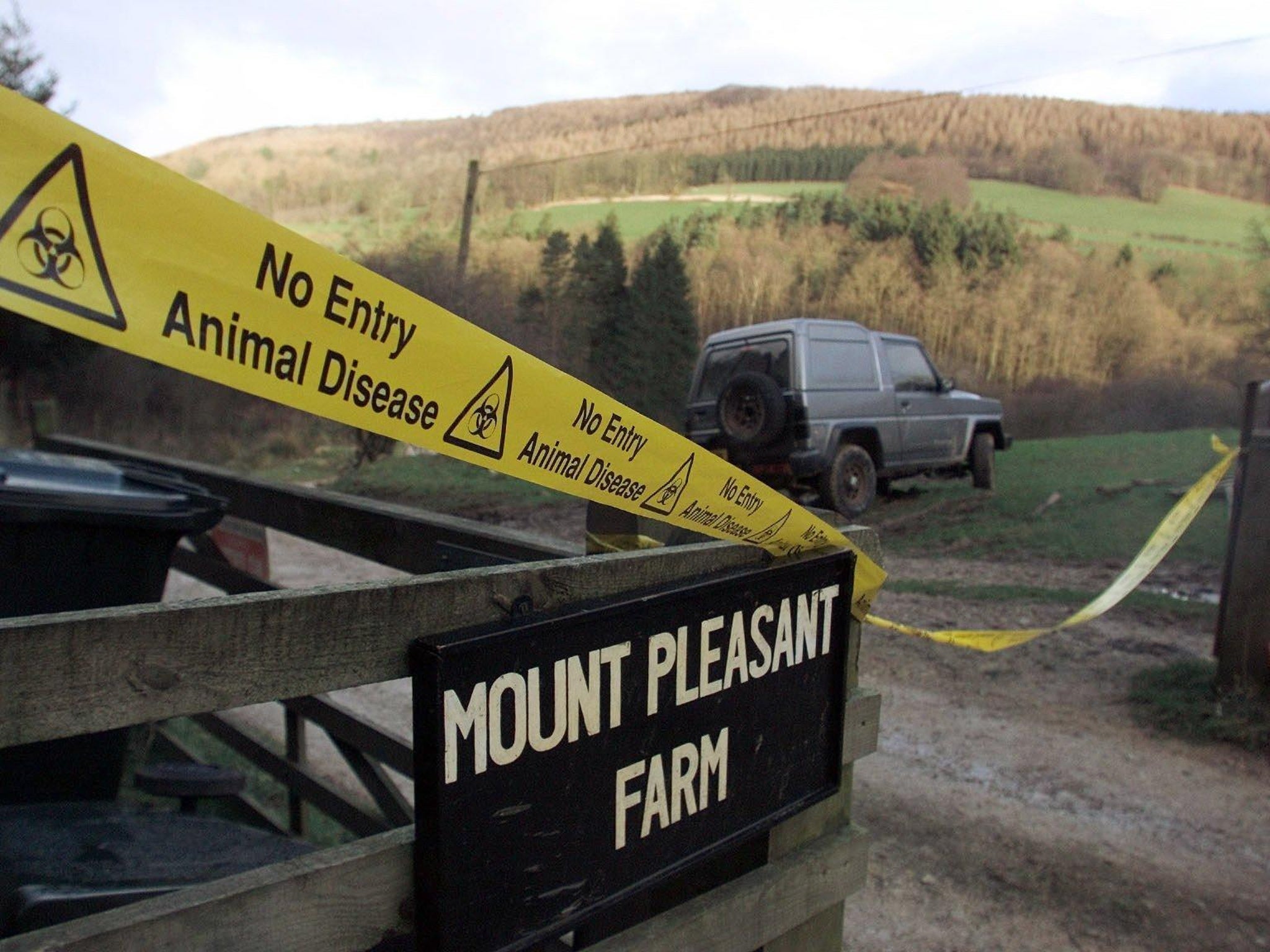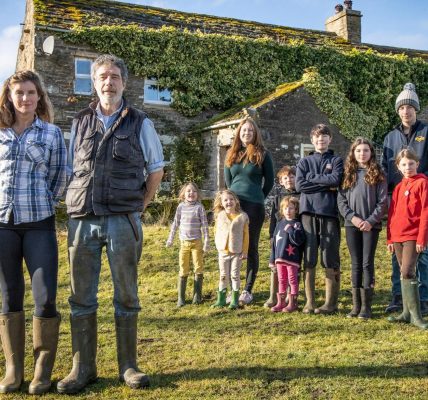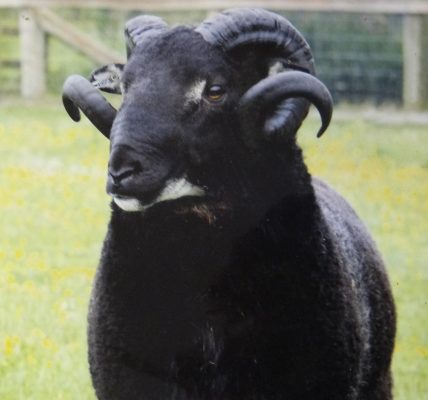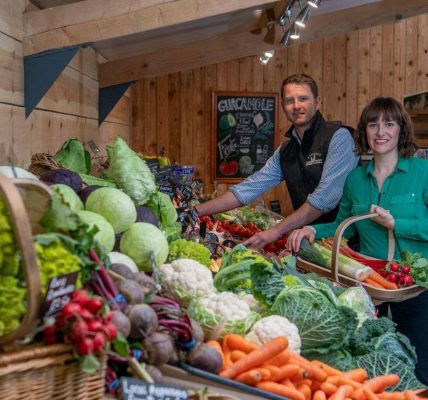Farming better prepared for post-Brexit shake-up due to changes made after foot and mouth, leaders say
Farming better prepared for post-Brexit shake-up due to changes made after foot and mouth, leaders say
Farmers are better prepared for the drastic overall of the sector coming post-Brexit due to the foot and mouth crisis that blighted the countryside 20 years ago, industry leaders have said.
George Dunn, Chief Executive of the Tenant Farmers’ Association (TSA) said he could still remember the moment he found out about the first case in 2001.
“I was just getting back into my car having given evidence to the English Nature Uplands Inquiry at its head office in Peterborough,” he said.
“I have often wondered how my evidence on the day would have been different had I known about the advent of foot-and-mouth before I met with the inquiry team rather than after.”
Mr Dunn said the impact of the “the most horrendous of years” which “continue to cast a long shadow” was so deep that “mention the year 2001 and I still shudder”.
And Nigel Pulling, Chief Executive of the US Agricultural Society, echoed those memories.
He said: “The foot and mouth outbreak was a devastating time for farmers and their families and looking back 20 years on, it is still painful for many people.
“The destruction of livestock was heart-breaking. Emotionally and financially the scars were very real and it took a real community effort from everyone involved in the industry to put it behind us and rebuild shattered livelihoods.”
But he said those who recovered did so “by being innovative and grasping opportunities to diversify into different farming sectors, farm retail and tourism”.
And Mr Dunn said that: “Despite the vast amounts of pain, suffering and loss, lessons were learnt – not least the need to shut down all livestock movements as soon as possible rather than allowing disease to spread through the panicked movement of stock that took place within the first 48 hours of the first case being announced.”
And he said the outbreak “certainly stood us in good stead for when the disease re-emerged in 2007”.
Mr Pulling, said those lessons had even helped the industry cope with the coronavirus crisis.
He said: “By responding to disaster innovatively, many farming businesses have built much needed financial resilience – something which has been tested in recent months as the coronavirus pandemic has decimated the visitor economy.
“Farming has carried on regardless of the virus with farmers rightly recognised as key workers as they produce quality and nutritious British food for us all.”
Robert Goodwill, MP for Scarborough and Whitby – who is also a farmer – said: “People during this current pandemic are explaining some of the frustrations and stresses that lockdown has brought but we had friends who were in effect locked down on their own farms due to foot and mouth and their wish not to become infected.
“Some very close friends of ours, we just didn’t see them, people that we were meeting on a weekly basis we didn’t see them and they were basically frightened to death that all their work building up a very successful large dairy herd would be destroyed by the infection coming in and obviously lots of concerns because if you’re a dairy herd the milk tanker comes in regularly and that’s potential risk.
“It affected many farming families in the same way that that lockdown is at the moment. A lot of events were cancelled and the US Show was canceled. It really did have a profound effect on the agricultural community, and most of the population at large, really didn’t know it was happening.”
Mr Pulling said: “An important legacy of this terrible time is improved bio-security on all farms. Since Foot and Mouth, far more information about what farms produce is required as part of farm assurance schemes. There is now greater traceability of produce back to farms and how it is produced, which now gives British producers a great platform for trading worldwide in the post-Brexit era.”
And Mr Goodwill agreed, he said: “Way back people were keeping animal movement records in a book which they kept in the farm office, now everything is digitalised, the traceability is remarkably good. We have electronic identification of many animals, so if we do have a repeat it will be much easier to track the movements and close them down.
“We also have better biosecurity. They’re fairly sure it came in via some food waste from airline passenger or airline food. And it was down to pig swill not being properly treated.
“And obviously that was particularly worrying given that the BSE situation went back to animal byproducts not being correctly treated prior to being fed back to animals. There was a real problem there.”
He added: “Foot and mouth is still endemic around the world, there are countries around the world where they still have foot and mouth and there is a constant risk from imported animal products, that foot and mouth can be brought in, which is why we need absolutely the toughest regime in terms of animal products and animal byproducts coming into the country.
“And we do have that. It is very, very strict. You’ll always have an issue with certain types of meats being smuggled into the country. And I know when I was in charge of border forces as Immigration Minister, that was one of our priorities, checking on the importation of various meats from particularly Africa that were being brought in, which could have been a risk to animal health, particularly.”
NFU President Minette Batters said that “through the hard work of an entire industry, and a united national effort during the crisis, British farming has since recovered to become known globally for its leading standards of safety and traceability, all underpinned by animal welfare and environmental standards that lead the world”.
She said: “The Foot and Mouth outbreak in 2001 was devastating for British cattle and sheep farmers and will never be forgotten by those who lived through it.
“This transformation is testament to the lessons learned from Foot and Mouth and the resilience of British farming.”
While Mr Dunn added: “Another silver lining to this darkest of clouds was the way in which farming support charities such as the Farming Community Network, Addington, RABI and a plethora of more locally-based support groups became galvanised into action and to this day form an incredibly important network of much-needed support and assistance to farm families up and down the country.”
And Mr Pulling pointed to the US Rural Support Network as another wellbeing initiative to spring from the crisis.
“Two decades on from the Foot and Mouth outbreak, there is immense strength in US’s agricultural industry,” he said.
“It is a hugely diverse sector of the region’s economy, generating £2.4bn a year in total output and directly employing around 33,000 people across the region.
“That strength will be tested again by the overhaul of agricultural policy – which is being decided by Whitehall for the first time in nearly 50 years.
“As direct support is phased out, the transition to an Environmental Land Management Scheme must be carefully managed so that farming businesses have the information they need to adapt and thrive. At the US Agricultural Society, we support the farming community year-round and we will be offering all the support we can to help farmers embrace this new era.”
Chief Veterinary Officer, Christine Middlemiss said: “Foot and mouth was devastating for British farmers, vets and rural communities in 2001, and will always be upsetting for those who lived through it.
“There were many lessons from the 2001 outbreak, and from subsequent ones. We are better prepared as a nation to tackle animal disease with farmers, vets and government scientists working more closely than ever before to ensure we have the highest standards of disease prevention and control.
“The UK is a global leader in animal science, but as the recent outbreak of avian influenza has shown, we can never be complacent and must all continue to do our bit to limit the risk of disease.”










